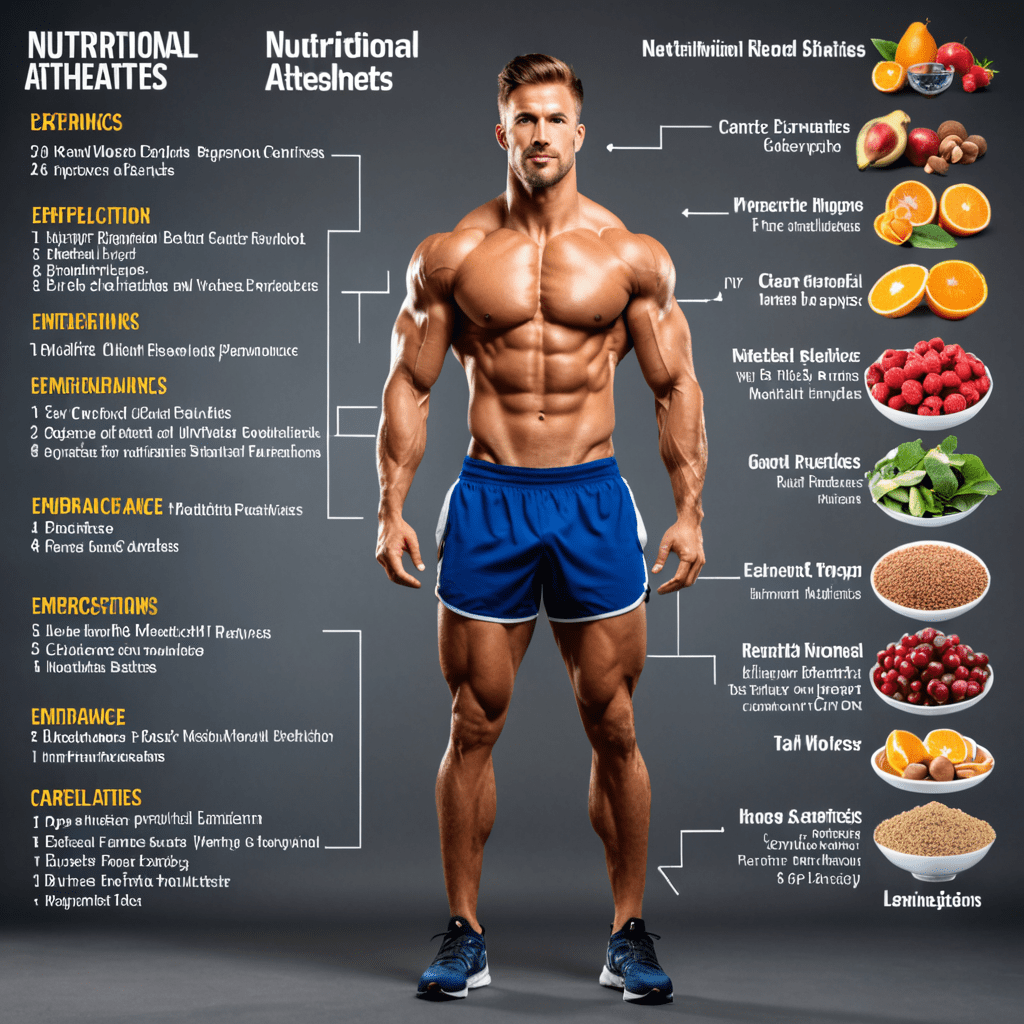
Nutritional Considerations for Endurance Athletes
Endurance athletes require specific nutritional strategies to fuel their bodies for prolonged physical activity. Whether you are preparing for a marathon, cycling event, or triathlon, paying attention to your nutrition is crucial for optimizing performance and recovery. Here are the key nutritional considerations that endurance athletes should keep in mind.
1. Carbohydrates: The Primary Fuel Source
Carbohydrates are the primary energy source for endurance exercise. Adequate consumption of carbohydrates is essential for maintaining glycogen stores in the muscles and liver, which are crucial for sustaining energy levels during long workouts or competitions. Focus on consuming complex carbohydrates such as whole grains, fruits, and vegetables, and tailor your intake to match your training volume and intensity.
2. Protein: Repair and Recovery
Protein plays a critical role in muscle repair and recovery. Endurance athletes should aim to consume sufficient protein to support the maintenance of lean muscle mass and aid in the repair of muscle fibers after intense training sessions. Lean sources of protein like poultry, fish, beans, and legumes are ideal choices for endurance athletes.
3. Hydration: Essential for Performance
Staying adequately hydrated is vital for endurance athletes. Dehydration can significantly impact performance and increase the risk of fatigue and injury. Monitoring fluid intake before, during, and after exercise is crucial. Aim to drink enough water to maintain proper hydration levels, and consider incorporating electrolyte-replenishing drinks during prolonged workouts or events.
4. Micronutrients: Supporting Overall Health
Endurance athletes have increased nutritional needs for various vitamins and minerals due to the demands placed on their bodies during training and competition. Ensure an adequate intake of micronutrients such as iron, calcium, vitamin D, and B vitamins, as deficiencies can hamper performance and lead to health issues. A well-balanced diet rich in fruits, vegetables, and whole foods is essential for meeting these requirements.
5. Pre-Exercise Nutrition: Fueling Up
Consuming a balanced meal or snack before long training sessions or competitions is crucial for providing the body with the necessary fuel to perform optimally. Focus on a combination of carbohydrates and a moderate amount of protein to provide sustained energy throughout the activity. Timing is also key, as eating too close to exercise may cause discomfort, while consuming the meal too far in advance may lead to inadequate energy availability.
6. Post-Exercise Nutrition: Recovery and Replenishment
Following endurance exercise, the body requires nutrients to aid in recovery and replenish depleted glycogen stores. Consuming a blend of carbohydrates and protein within the post-exercise window (ideally within 30-60 minutes) can enhance recovery by promoting muscle glycogen synthesis and initiating the repair process. Including sources of antioxidants and anti-inflammatory nutrients can further support the body’s recovery process.
7. Individualized Approach: Listen to Your Body
While general guidelines are helpful, it’s important for endurance athletes to recognize that individual nutritional needs can vary based on factors such as body composition, training intensity, and environmental conditions. Pay attention to how your body responds to different nutritional strategies and consider seeking guidance from a sports nutrition professional to tailor your nutrition plan to your specific needs.
By addressing these key nutritional considerations, endurance athletes can optimize their performance, support their training efforts, and promote overall health and well-being.
FAQ: Nutritional Considerations for Endurance Athletes
What are the key nutritional considerations for endurance athletes?
Endurance athletes should focus on consuming adequate carbohydrates to fuel their performance, sufficient protein for muscle repair and recovery, and healthy fats for sustained energy. Hydration is also crucial, alongside electrolyte balance and proper micronutrient intake.
How does nutrition impact endurance performance?
Nutrition plays a critical role in endurance performance, affecting energy levels, recovery, and overall stamina. Proper nutrition supports glycogen storage for long-lasting energy, muscle repair and growth, and efficient hydration, all of which are essential for peak athletic performance.
What are some examples of nutritionally-dense foods for endurance athletes?
Nutritionally-dense foods for endurance athletes include whole grains, fruits, vegetables, lean protein sources, nuts, seeds, and healthy oils. These provide essential carbohydrates, vitamins, minerals, antioxidants, and quality protein to support endurance training and performance.
How can endurance athletes optimize their nutrition for training and competition?
Endurance athletes can optimize their nutrition by consuming a balanced diet rich in whole foods, timing their meals and snacks to support training sessions, and incorporating proper hydration strategies. Working with a sports nutritionist can also help athletes tailor their nutrition to their individual needs and goals.


